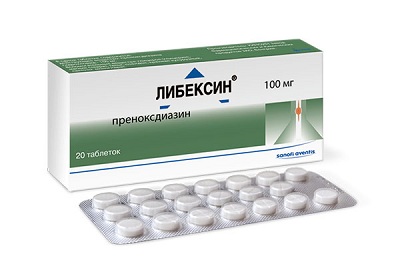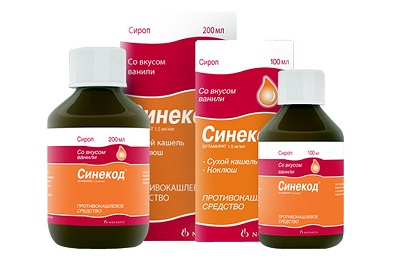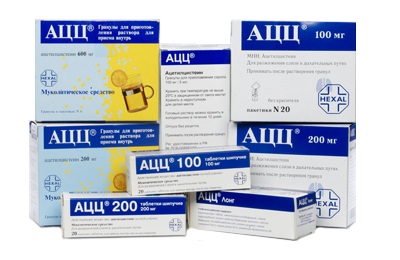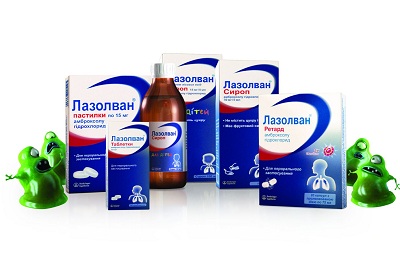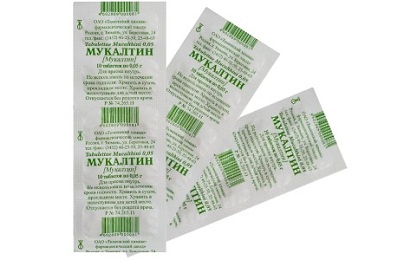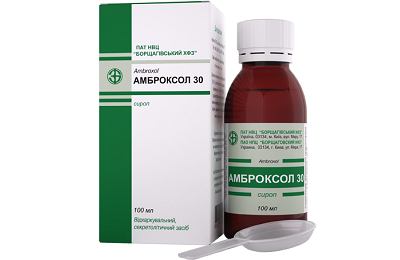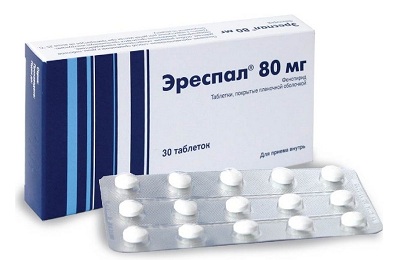Cough is a frequent companion of colds. Its treatment cannot be carried out on its own, since in most cases, a cough is just a symptom of the underlying disease. A cough with a cold delivers a lot of unpleasant sensations to a person. There are a sufficient number of ways to help quickly and effectively cope with both the cough itself and the cold that caused it. It should be remembered that the treatment of a disease accompanied by a cough is mandatory, because otherwise the disease can become chronic or cause complications.
With a cold, dry cough
The method by which the treatment of cough for a cold is carried out largely depends on the nature of the cough itself. It can be dry or wet, with sputum separation. With a wet cough, phlegm is present in the lungs, which affects the respiratory system and provokes a cough. With the dry nature of this symptom, the cause is irritation of the receptors located on the mucous membrane of the respiratory system.
One of the most common treatments for dry coughs for colds is gargling with a baking soda solution. This method will give a visible effect only in inflammatory processes of the upper respiratory tract: the pharynx or larynx. If the cough is caused by damage to the bronchi, then gargling will not help. In this case, it is better to replace them with inhalations with soda or chamomile decoction.
Inhalations with the addition of eucalyptus oil are considered another recipe to cope with a cough with a dry cold. A few drops of it drip into a container of boiling water, then you need to sit over it and inhale the emitted vapors, covering yourself with a terry towel.
Treating a wet cough for colds is mainly to get rid of phlegm. To do this, you need to make it more liquid in order to facilitate its removal. Mucolytic drugs can help in this, as well as agents similar to them in action. One of these compounds is honey with the addition of birch buds. To prepare such a remedy, you will need a glass of honey and half a cup of kidneys. These ingredients are mixed by adding about 100 ml more water to the mixture. Then it is put on fire and boiled for about 5 minutes. After that, the product is filtered, you can also add a couple of drops of aloe juice and a little sugar there. The resulting mixture is taken in a large spoonful after meals several times a day. Store the product in a cool, dark place.
Another method of treating a wet cough for colds is honey and herbal compresses. One of the recipes is as follows. A small spoonful of dry mustard powder, a small amount of vodka, the same amount of vegetable oil and a tablespoon of honey should be mixed well. The whole mixture is gently applied to a piece of cloth or gauze, which should be large enough to cover your back or chest completely. The compress is placed on the chest or back and left on the skin for several hours. It is better to carry out the procedure in the evening, before bedtime. Most likely, the next day the cough will recede and the patient will feel significant relief.
Cough after a cold
Cough does not go away after a cold
It is not uncommon for a cough to persist for a long time after other cold symptoms have subsided. Such a cough torments the person and gives him trouble.
A cough with a cold is one of the most characteristic symptoms of the disease. It can persist for some time after the cure of the underlying disease, which is one of the variants of the norm. However, a residual cough should not continue for more than 10-14 days after other symptoms of a cold have disappeared. If the cough remains for a longer time, then this may indicate the development of complications, such as bronchitis, pneumonia, whooping cough, and others. Therefore, if the cough after a cold persists for more than 2 weeks, you should visit a therapist, and if necessary, other specialists. In some cases, after severe infectious diseases, it can persist up to two months.
Causes of cough after a cold
Acute period colds usually quite short-term, in most cases it lasts no more than a few days. However, even in this short time, pathogenic microorganisms or viruses have time to severely destroy the mucous membrane of the respiratory system. This leads to an increase in its sensitivity. Inhalation of very cold air, dust, sharp temperature contrast can lead to coughing fits. This residual cough may be dry or accompanied by mild sputum production. Most often, it is manifested by a slight cough and a sore throat. Some time after a cold, the body recovers, and the cough disappears completely. During the recovery period, all medical procedures should be carried out aimed at getting rid of the cough, which was carried out during the acute period of the disease.
Long cough after a cold: treatment
In the treatment of residual cough, various herbal extracts can be used, for example, based on quince, pine buds, ivy leaves or other medicinal plants. Compresses, inhalation, warming up and a special set of physical exercises are also methods of treating a prolonged cough after a cold. Traditional medicine offers its options quick treatment residual cough.
Medicinal plants have antispasmodic, mucolytic and expectorant effects, they can reduce the severity of mucosal edema.
Residual cough of a wet nature can be treated with inhalations with medicinal plants such as string, yarrow, eucalyptus, plantain, coltsfoot, wild rosemary and others. You can use saline and essential oils for these purposes, for example, fir, lime, rosemary, sage, calamus, pine and others. In the absence of special devices: a nebulizer or inhaler, the inhalation procedure is carried out over any container. In this case, it is important to monitor the temperature of the steam so as not to burn yourself. The patient needs to bend over the container and cover himself with a towel, inhaling the therapeutic steam. The duration of this inhalation is about 10 minutes. After the procedure is over for some time, you can not leave the room.
![]()
Treatment for a cough after a cold may include warming compresses, in the preparation of which they use badger fat, lard, various warming ointments made on the basis of essential oils. With the chosen remedy, you need to rub the feet and the area chestthen put on thick socks and a woolen scarf on top.
You can get rid of a cough after a cold with the help of figs with milk. This preparation requires a few dried white figs and a cup of milk. The ingredients are combined and boiled, after which the resulting drink is left for infusion. The product should be drunk hot several times a day.
A well-known remedy for residual cough is black radish with added sugar. In a large radish fruit, the top is cut off and a depression is made in the pulp, where a little honey is poured or sugar is put. Put the cut off top in place, and leave the radish for about one day. During this time, juice appears in the recess made, and it is this that is used when coughing before eating a large spoonful.
They help to cope with a cough after a cold and exercise physiotherapy exercises, this method is especially indicated for the treatment of cough in children. The set of exercises is performed several times a day. The first exercise is a push-up from the floor with the legs bent at the knees. The second exercise is carried out lying with your back on a large fitball and holding dumbbells in your hands. It consists in spreading the arms as they exhale and alternately moving them up and down. The number of repetitions is 10 times. These exercises can increase lung capacity.
Vibration massage also has a good effect. It is carried out with light tapping movements using the ribs of the palms along the lines along the spine, while the spine itself cannot be touched. The duration of the massage is about 2 minutes.
You can increase the volume of your lungs and improve their performance by inflating balloons. However, such exercise in children can lead to hyperventilation, which is manifested by vomiting and dizziness. Therefore, instead of balloons, you can buy a harmonica for your baby.
It is important to restore weakened immunity after the disease. This can be achieved with good nutrition, regular intake of essential vitamins and physical activity. For some time after a cold, the mucous membrane of the nose and throat remains too dry. You can get rid of dryness by dripping a few drops of vaseline or sea buckthorn oil into the nasal passages.
Cough without a cold
A cough is one of the body's reflexes in response to inflammatory process or exposure to any irritant. A cough can occur with colds. However, sometimes it appears without any signs of a cold. Such a cough can be a sign of a serious illness.
Causes of a cough without a cold
In any case, a cough with or without a cold is just a symptom. To determine the causes of a cough without a cold, you need to analyze other symptoms of the disease and the nature of the cough itself: dry or wet (productive).
The following pathologies can cause cough without a cold:
- Gastroesophageal reflux. This pathology is manifested by the release of stomach acids into the esophagus. In this case, a cough may appear, especially when lying down. Other symptoms of this condition are a sour taste in the mouth and heartburn.
- Chronic obstructive pulmonary disease.
- Lung congestion, the initial cause of which is a viral infection. it residual phenomenon may persist for some time after the disease is cured.
- Damage to the lungs, irritation of the esophagus, larynx and pharynx due to prolonged smoking.
A dry cough without a cold can occur for the following reasons:
- Allergic reaction.
- Bronchial asthma.
- Bronchospasm.
- Exposure to irritants, dust, etc.
- Taking ACE inhibitor drugs that are used to lower blood pressure.
In addition, a cough without a cold can be caused by tumors of the mediastinum, pleurisy, lung cancer, tuberculosis, and pathologies of the nervous system. IN childhood coughing can be caused by inhalation of dust or tobacco smoke, emotional distress, acute laryngitis (croup). Babies may have a cough and runny nose during teething.
There is also a physiological cough that is not accompanied by symptoms of a cold. It manifests itself in the fact that a healthy child coughs about 20 times a day, while there are no other symptoms of the disease. Thus, the child's airways are cleared of phlegm and alien bodiestrapped in the respiratory system. Treatment for physiological cough is not required.
Cough without a cold: treatment
Treatment of a cough without a cold should be aimed not at getting rid of this symptom, but at the underlying disease that caused it. However, to reduce the manifestations and severity of cough, you can take some measures:
Productive moist cough requires sputum dilution. For this purpose, an abundant warm drink helps. You should not suppress the cough, because in this way the mucus accumulated there is excreted from the lungs and bronchi. If this process is disturbed, sputum accumulates in the lower parts of the lungs, which can cause complications;
A cough with and without a cold is a reason to quit smoking forever;
You can relieve irritation and get rid of a sore throat by rinsing your throat with water and adding ordinary salt to it (the ratio is half a small spoon to a cup of water);
The air in the room where there is a patient with a cough must be sufficiently humidified;
Inhalation with the addition of essential oils: eucalyptus, thyme, frankincense, marjoram and others helps to make the cough more productive.
Of course, a cough without a cold does not always require a visit to a doctor, often it is just a reaction to dust and other irritants in the air, an allergic reaction or a residual phenomenon after an illness. However, if the cough is accompanied severe pain, there are traces of blood in the expectorant sputum, or the cough persists for more than 10-14 days, you should consult a specialist. In such cases, an ECG, chest x-ray, general analyzes blood and urine tests, lung volume determination and other examinations.
If the cough does not go away for more than three weeks, then experts call it lingering or chronic. Most often, this condition is caused by chronic bronchitis, which is often observed in smokers and people working in hazardous industries (paints and varnishes, pharmaceuticals, etc.). If a prolonged coughing bothers a child or a non-smoker and when the action of possible irritants is excluded, an early examination and specialist consultation are recommended.
In chronic coughing, first of all, they examine for the ingress of secretions from the nose into the nasopharynx, the release of stomach contents into the esophagus or pharynx, asthma. Also, the cause of a long-lasting cough can be more serious diseases - tumors, diseases of the heart or connective tissue of the lungs.
Why doesn't the cough go away?
There can be many reasons why a cough does not go away for a long time. In some cases, this condition is caused by benign formations in the lungs, smoker's bronchitis, dysfunction or blood vessels.
In addition to constant coughing, other symptoms may also be present (wheezing in the lungs, runny nose, blood in sputum, a feeling of heaviness in the chest, etc.).
Asthma is the most common cause of a lingering cough. With this disease, coughing can bother you constantly or periodically (in case of exposure to allergens).
An untreated cold can also provoke a prolonged cough, as a rule, this condition is caused by an increased susceptibility of the lungs, due to which a cough may appear at a reflex level.
Why doesn't the cough go away after a sore throat?
If, after a sore throat, the cough does not go away for some time, then there may be several reasons for this. First of all, this condition is facilitated by a weakened immune system against the background of illness and treatment, which is unable to resist both new viruses that attack the body, and "old", untreated ones. Sometimes it happens that the diagnosis is wrong or the sore throat proceeded against the background of another disease.
For example, with viral rhinitis, mucus from the nasal cavity enters the throat, which causes reflex coughing up, thus the body frees the throat from pathological contents.
On the surface, angina is often confused with viral pharyngitis. An accurate diagnosis can be made with a smear and culture. The causative agents of sore throat are bacteria, and pharyngitis is provoked by viruses. With angina, antibiotics are invariably prescribed, but such drugs are harmful only to bacteria, and viruses continue to attack the body. As a result, the immune system weakened by antibiotics cannot resist viruses, which leads to the progression of the disease and prolonged cough. Viral pharyngitis against a background of inflammation in the throat can cause a dry cough with spasms in the larynx.
Also, coughing can be a sign of rheumatic fever, usually in addition to coughing, chest pains, fatigue, shortness of breath, rapid pulse are also worried.
If the cough does not go away for a long time, you need to contact a therapist and undergo an examination, take an X-ray, after which the doctor will prescribe treatment.
It often happens that after a cold, the cough continues to torment. If the cough treatment does not show the proper results and this condition lasts more than two weeks, then you should not postpone the visit to the doctor. In most cases, a cough is caused by a new infection or virus that a weakened immune system cannot deal with.
Why doesn't the cough go away for a week?
If the cough does not go away for a week, and at the same time other symptoms are observed (runny nose, low temperature), then most likely the body was struck by a common cold. With timely and correct treatment both colds and coughs are fairly easy to deal with. With improper treatment, non-compliance with the regimen or complete absence of treatment, a severe inflammatory process in the trachea or bronchi may develop.
For the treatment of cough in the early stages, inhalation is recommended. It has long been known that when warm vapors are inhaled, a moist environment is formed, which improves the formation and excretion of phlegm. For inhalations, decoctions and infusions of medicinal plants, essential oils are used.
To prepare a solution for inhalation, you need 1-2 tbsp. medicinal plant (chamomile, sage, mint, thyme) pour 400 ml of boiling water (you can also dissolve a few drops of essential oil in hot water). Inhalation can be carried out in several ways: breathe over a bowl of herbs, covered with a towel, roll a tube out of paper and inhale therapeutic vapors with it, or use a special inhaler.
Inhalation should not be done over boiling water, as well as with high blood pressure.
Why doesn't the cough go away for 2 weeks?
Sometimes situations arise when, against the background of the prescribed treatment, the cough does not go away and continues to torment for more than a week. In this case, it is necessary to consult a doctor, undergo an additional examination and, if necessary, undergo a new course of treatment.
A cough that continues for a long time is in most cases caused by a new infection, which the weakened body has not coped with. The most common causes of prolonged coughing are mycoplasmosis, pneumocystosis, in more rare cases, coughs are caused by fungal infections (candida, chlamydia) or mycobacterium tuberculosis.
It is worth noting that incorrect diagnosis and treatment can give severe complications even with a common cold.
Why doesn't the cough go away for a month?
Coughing can occur as a reaction of the body to pollen, fur or medication. In this case, we are talking about an allergic cough.
If, under the influence of allergens, the cough does not go away for several weeks, then in most cases it turns into bronchial asthma, therefore it is important to identify and eliminate the irritant in a timely manner.
Also, the cause of prolonged coughing can be respiratory infection, against the background of which the inflammatory process occurs in the tonsils, pharynx, nasal mucosa, larynx, trachea, bronchi, lungs.
The cause of a lingering cough in children may be the presence foreign body in the upper respiratory tract. With paroxysmal coughing with deep breaths, whooping cough may develop.
Less often, if the cough does not go away for several weeks, the cause is fibrous cystosis, bacterial pneumonia, tuberculosis, tumors in the lungs.
Why doesn't the cough with phlegm go away?
Sputum is a discharge from the bronchi and trachea, it can be normal (in a healthy person) and pathological (with the development of certain diseases).
In the respiratory tract of a person, mucus is constantly produced, which protects the body from pollutants (dust, small debris, etc.), and also resists pathogenic microorganisms.
The color of sputum can change from transparent to green against the background of the development of various diseases of the respiratory system, and various impurities (blood, pus, etc.) may also be present in it.
Coughing up phlegm is a good sign as this is how the body gets rid of germs. To help the body, medications are prescribed that facilitate expectoration, promote the excretion of sputum (ambroxol, bromhexine) and restore bronchial secretions (ACC).
For allergic coughing, antihistamines are prescribed (loratadine, fexofenadine).
If the cough persists, phlegm is released, and there is no temperature, then allergies, heart failure, toxic substances in the air, smoking, and ticks that live in feather pillows can be the cause of this condition.
To alleviate the condition with a wet cough, you need to drink more liquid, it will help reduce the viscosity of sputum and improve its excretion from the bronchi.
If, during treatment, the cough with sputum does not go away, you need to inform the attending physician about it and undergo an additional examination (blood test, sputum, x-ray).
Why doesn't dry cough go away for a long time?
Coughing without sputum is called dry, usually it occurs against the background of various diseases of the upper respiratory tract.
If the dry cough does not go away for a long time, it is advisable to start drug treatment... There are several types of medicines, drugs based on codeine and ethylmorphine (codeine, glaucine) have a central effect and suppress the cough reflex by acting on the medulla oblongata, drugs based on acetylaminonitropropoxybenzene (Codelac broncho, Omnitus, Falimint, etc.) act on cough receptors.
As an auxiliary treatment, you can use proven folk remedies, which relieve a debilitating dry cough. The most effective method for the treatment of this type of cough is warm milk with baking soda, such a drink helps to reduce the cough reflex and improve well-being.
You can also drink a decoction of black currant, peppermint, radish juice with honey, anise fruit extract 2-3 times a day.
For dry coughing, inhalation with baking soda helps.
Why doesn't the cough go away after pharyngitis?
With pharyngitis, the pharyngeal mucosa becomes inflamed, it can occur in both acute and chronic forms. Against the background of the disease, dry coughing occurs, which usually intensifies at night and leads to spasms of the larynx.
If even after treatment the cough does not go away, then most likely the disease has not been completely cured or ineffective therapy has been prescribed.
There are situations when treatment stops on its own, even after a slight improvement in the condition. Usually in such cases, a person does not want to "poison" himself with chemistry and stops taking medications, in the hope that herbal decoctions or strong immunity will help cope with the disease. However, such an attitude towards treatment is unacceptable, because after the withdrawal of drugs, the remaining viruses and bacteria can attack the weakened body more strongly, which will lead to the development of severe complications.
Why doesn't the cough go away after laryngitis?
With laryngitis, a dry cough, without sputum discharge, hoarseness of voice, worries, Usually the disease is a complication of a cold, but it can develop on its own, after cold drinks, hypothermia, overstrain of the vocal cords, inhalation of icy or polluted air.
In the initial stages, inhalation, rinsing, warm drinks, medications to improve expectoration are indicated. Usually after a few days, sputum production begins, and the disease gradually disappears. In the event that the coughing does not go away for a long time after recovery, then an additional examination is required. A cough can occur with inflammatory processes in the nasopharynx (adenoids, tonsillitis), and a prolonged wet cough may indicate an infection in the lower respiratory tract.
Why doesn't the cough go away after pneumonia?
Pneumonia is an infectious pneumonia. At the beginning, the cough is dry, but over time, as the inflammation in the lungs intensifies, it becomes moist, mucous sputum appears. With pneumonia, the cough does not go away for quite a long time, on average, pneumonia lasts about a month, but after recovery, coughing is a necessity for the body, since it helps to remove mucus from the lungs, it is usually also called post-infectious cough. The duration of post-infectious cough can range from two weeks to several months, depending on the condition of the body.
To improve health after pneumonia, it is recommended to engage in breathing exercises, as well as to undergo a course of physical procedures.
After treatment, the sensitivity of the cough receptors decreases, which is why coughing may appear when inhaling cold air, dust, etc., this condition is a consequence of the infection, but not a manifestation of the disease.
Why doesn't the cough go away after a cold?
Cough almost always accompanies colds or viral diseases... As a rule, the symptoms of a cold disappear after a few days, and after a week the body is already completely healthy, but a cough can bother for several more weeks.
It is believed that coughing after a cold (residual) is the norm, but if it lasts more than three weeks, then in most cases it is associated with the development of complications (pneumonia, whooping cough, bronchitis, etc.).
The acute phase of the disease lasts for several days, but during this period pathogenic microorganisms destroy the mucous membrane of the respiratory tract, which leads to increased sensitivity of the bronchi. After a cold, a person is often worried about a sore throat, a slight cough, and the discharge of a small amount of phlegm. After a disease, a weakened body takes some time to get back to normal and restore mucous membranes. During this period, it is necessary to avoid hypothermia, it is advisable to drink a course of vitamins.
If, after the illness, the cough does not go away, it becomes stronger, other symptoms appear (chest pain, fever, sputum with purulent or bloody impurities, etc.), you should consult a doctor to establish the cause and exclude the development of serious diseases.
Why doesn't cough go away after bronchitis?
After bronchitis, coughing occurs in about half of patients. Most often, children suffer from residual cough, since their bronchi are more vulnerable than in adults, and the recovery period lasts longer.
If the cough does not go away after bronchitis, then the reasons may be as follows:
- slow healing process;
- severe damage to the respiratory tract mucosa;
- complications;
- erroneous or inadequate treatment;
- allergic reactions (in particular to drugs).
Acute bronchitis lasts an average of 7 to 10 days, but even after visible improvements, the bronchi take time to recover.
On average, coughing completely disappears two weeks after bronchitis, provided that the treatment process proceeded normally and there are no complications. If the coughing increases and lasts more than three weeks, a specialist consultation is needed, since this condition may be associated with the development of other diseases (asthma, pneumonia, bronchial obstruction, allergies).
Why doesn't the cough go away during pregnancy?
If a pregnant woman does not have a cough for a long time, this can lead to serious consequences. During coughing, tension of the abdominal wall and uterus occurs, as a result, the tone of the internal organs increases. Uterine tone on early dates pregnancy is threatened with spontaneous abortion, later dates - premature birth.
Coughing is usually a symptom of a viral or infectious diseaseit can also appear when exposed to irritants (allergic cough). A severe debilitating cough requires immediate treatment, which should be prescribed by a specialist, taking into account the duration of pregnancy, the woman's condition and the cause of the cough.
What if the child's cough persists?
If a child's cough does not go away for a long time, the first thing to do is to identify the cause of this condition. If coughing bothers after an illness (ARVI, influenza, bronchitis, etc.), then in this case, the cough may be associated with the recovery period. Harmful microorganisms weaken the body, provoke inflammation and irritation of the mucous membranes of the respiratory tract and the body needs time to completely free the bronchi from mucus residues and restore the epithelium.
In this case, coughing is not dangerous, usually the child occasionally coughs, there may be a slight discharge of sputum.
It is worth noting that each organism is individual, and the recovery process in each individual case proceeds in its own way and can sometimes drag on for months.
If the cough continues for more than three weeks, while the amount of sputum increases, the cough becomes stronger, it is necessary to show the child to the doctor, since in this case there may be a secondary infection, the development of complications or a severe allergic reaction.
Folk remedies for cough
If the cough does not go away for a long time, you can use folk remedies that will help soothe irritated mucous membranes, improve the process of excretion of sputum and speed up the healing process:
- Infusion of dill seeds - take 1 tsp. dill seeds, crush, pour 250 ml of boiling water, leave for 20-25 minutes. It is recommended to drink such an infusion instead of water during the day until complete recovery.
- Serum with garlic - 2 tablespoons pour 250 ml of garlic whey and put on fire, immediately after boiling, remove from heat and cool. This broth should be drunk during the day.
- Honey - has unique anti-inflammatory and antimicrobial effects, with a prolonged cough, 1 tsp can be absorbed in the mouth. honey several times a day.
- Medicinal broth - mix in equal parts licorice, marshmallow root and elecampane, take 1 tbsp. mix and pour 200ml cold water, leave for two hours. Then put on fire, bring to a boil. Drink the cooled and strained broth in three doses during the day, the course of treatment is 10 days (it is recommended to prepare a new portion every day). If the coughing continues, the course of treatment can be repeated after a week.
As already noted, coughing is a protective reaction of the body that helps free the respiratory tract from small dust particles, various contaminants, viruses, etc. If the cough does not go away for a long time, you need to determine the cause of its appearance. It is worth remembering about the residual effects that are observed during the recovery period of the body and helps to cleanse the bronchi from mucus residues. Also, coughing may appear due to increased sensitivity of receptors, in this case, coughing is disturbing after inhalation of cold air, dust or the action of allergens.
Prolonged coughing, which becomes stronger over time, is accompanied by profuse sputum production or other symptoms (chest pain, fever, runny nose, weakness, etc.) requires urgent consultation with a specialist, since this condition may be associated with a serious illness (asthma, tuberculosis) ...
Che, after a cold, the cough does not go away .. tell me, this is the situation ...
Answers:
Mitina Lyubov
Before, I always had all the chills according to the same scenario, first a throat, then snot, then a cough without phlegm for several weeks (tracheitis), and even with relapses. From sick leave to sick leave.
I was helped by inhalation with breast collection, or over a pot of boiled potatoes to breathe. Iodine net for the neck and chest, warming ointment Dr. Mom or pepper plaster. To relieve cough syndrome, I sucked regular lozenges in addition to cough lozenges. While I was sucking the candy, I didn't cough. I made foot baths with mustard for 10-15 minutes, then into socks and under the blanket, sweat.
Now I try to catch a cold at the very beginning - warm milk with honey, broth, I try to drink more. Gargle with baking soda and saline. At the very beginning, a one-time shock dose of vitamin C - it seems 1 gram, then drink in the usual dosage (For colds it is necessary!) you have a weakened ummunity and you also need them) With such treatment, complications and relapses no longer happen to me (pah-pah, I would not jinx it!).
By itself, the cough is unlikely to pass, it is necessary to be systematically treated, at least with folk remedies. Just ALWAYS consult with your doctor and pharmacist about the drugs I have named, maybe you need something else.
Snezhana Chenina
Try drinking a decoction from the wild rosemary sprouts. Very good for dry cough.
KATYA K
Try Licorice syrup, it removes phlegm well. I also had a cough that did not go away for a long time, maybe you had bronchitis after him it happens. Check your bronchi just in case, consult a pulmanologist. Licorice also helps with bronchitis.
L
Hmm ... you need to rinse your throat ... with herbal infusions ... well, or warm water with salt.
managin _
You smoke a lot or a tube)
An adult's cough does not go away for two weeks or a month: what to do
Among the many symptoms of diseases, cough is a complex and unpleasant manifestation. Therefore, if it does not go away after a week or a month, then the patient begins to worry and suspect the presence of serious illnesses.
Sometimes, after the course of a cold, a cough remains that does not end for a long time. At the same time, various means and methods of treatment were tried. In this case, for medical care must be treated if the cough persists for more than 15 days.
But why doesn't this symptom go away quickly? Perhaps the body was exhausted during the course of a cold and at this inopportune time an infection or a virus entered it.
The body can overcome viruses on its own, but only if it is not weakened. Therefore, in order to successfully cure a prolonged cough, it is necessary to find out which microorganism provoked its appearance, so all the necessary research must be carried out.
Prolonged cough: causes
If the cough does not go away for a long time, for example, the cough does not go away for a month, then the following infections and diseases contribute to it:
- pneumocysts;
- mycoplasma;
- fungal microflora (chlamydia, candida);
- tuberculosis.
In addition, the infection can be mixed. This option is the worst, because the course of such diseases is quite difficult. At the same time, the patient experiences weakness, his temperature rises strongly and sweat is profusely secreted.
It is worth noting that incorrect, inadequate or untimely treatment of such diseases leads to their progression.
All of the above microorganisms can enter the body by airborne droplets when an infected person sneezes or coughs.
The chances of infection are doubled if the adult's body is weakened or under severe stress at work.
Therefore, you should strengthen the immune system, eat a lot of vegetables and fruits, get enough sleep and play sports.
What if the cough does not stop for a week?
Cough is an involuntary expiratory reflex resulting from irritation of the mucous membrane of the larynx, bronchi or throat and lung tissue. Thanks to this symptom, the respiratory tract is cleared of foreign bodies, harmful microorganisms, mucus, dust and phlegm.
The reasons that provoke a prolonged cough include:
- colds;
- allergies;
- emotional stress.
Moreover, a cough can be wet or dry, nocturnal, daytime, intermittent, paroxysmal, and so on.
If the cause of the weekly cough was an acute respiratory disease, then the doctor prescribes antitussive drugs, while antibiotics cannot be taken, since they only affect bacteria. But antibacterial agents may be appropriate for bronchitis and pneumonia, which are accompanied by symptoms such as fever and severe cough syndrome.
In addition to antibiotics, if a severe cough does not go away for a week, expectorant drugs based on medicinal plants are prescribed. In addition, the doctor may prescribe immunomodulatory agents that activate the protective functions of the body and send away the action of antiviral drugs.
It is worth noting if the cough not only does not go away for more than a week, but is also accompanied by pain in the chest, high temperature (38 and more), and when coughing up bloody, green or yellow sputum is released, then you cannot self-medicate, but you must quickly consult a doctor.
There are some guidelines that are important to follow when treating a prolonged adult cough. So that the throat does not dry out, you need to consume a lot of fluids. To this end, you can drink warm milk with honey every evening.
Fruit drinks and juices are no less useful. In addition, if a dry cough does not go away for more than a week, you should drink fresh juice from black radish (three times a day, 1 tbsp. L.).
What if the cough does not stop within a month?
Why does a prolonged cough occur and what to do to eliminate it? If this symptom does not go away for a month, then the following factors may be to blame:
- congenital lung pathologies;
- bronchitis;
- a foreign body in the respiratory tract;
- pneumonia;
- tuberculosis;
- bronchial asthma.
For the successful treatment of a long-term cough, it is important to know whether this symptom was the root cause of the disease or whether it developed during its course. In addition, you need to determine its nature - productive or unproductive, frequent or rare, spastic or paroxysmal, and so on.
It is necessary to quickly consult a doctor if the cough with phlegm does not go away for more than a month and is accompanied by such signs as:
- severe swelling;
- sweating;
- nausea;
- weight loss;
- colorless, thick discharge or sputum with blood impurities;
- lack of appetite;
- dyspnea;
- heat;
- fast fatiguability;
- chest pain.
In addition, a long-lasting cough can become chronic. To prevent this from happening, you need to go to the doctor if the cough reflex does not stop within five days. Many do not pay due attention to this symptom, and even more so if it is not accompanied by weakness, runny nose and fever, but in case of non-treatment, the time will be irretrievably lost.
When the cough does not stop for about four weeks, it is necessary to make an appointment with an ENT specialist, a therapist, an allergist, a phthisiatrician and possibly a pulmonologist. After the examination, doctors will be able to determine why the cough does not stop for so long and what to do to cure it.
So, a cough that lasts for a month may indicate the presence of:
- pneumonitis;
- chronic bronchitis;
- heart failure;
- bronchial asthma;
- cancer metastases or lung cancer;
- sinusitis;
- asbestosis;
- tuberculosis;
- whooping cough;
- pleurisy;
- silicosis.
But to definitively determine the cause of prolonged cough, additional research will be required. This can be a blood test, sputum culture for flora, a blood test for the presence of mycoplasma and chlamydia, a Mantoux test and an X-ray of the lungs.
In addition, a cough that does not subside for more than 4 weeks is typical for smokers and people working in hazardous industries, where they constantly inhale mold and dust.
For example, silicosis often develops in miners, asbestosis in construction workers, and pneumonitis in agricultural workers.
Treating a cough that lasts longer than a month
It is worth noting that it is impractical to treat a prolonged cough without medical advice. Indeed, depending on the cause, a certain method of treatment is needed, for example, with heart failure, it makes no sense to drink antitussive syrups, swallow pills or do inhalation.
So, for the successful treatment of a persistent cough in an adult, it is important to restore water balance, so the patient needs to drink plenty of fluids. In this case, the patient's diet should not be too high in calories; it is best to enrich it with fruits and vegetables.
In addition, it is effective to carry out inhalations for coughing with the addition of pine oil, coltsfoot, baking soda, thyme, sage and chamomile.
With a productive cough with viscous secretions, you need to use drugs that thin the phlegm. These drugs include mucolytics and expectorant drugs.
Moreover, it is better if such remedies are based on medicinal plants. And with a small amount of discharge, expectorant syrups and tablets are prescribed.
But it is worth noting that such drugs cannot be taken together with antitussive drugs.
Prolonged cough
A long-term cough is one that does not go away for 4-8 weeks. Therefore, a two-week cough is considered only a suspicion of a long-term symptom.
So, if the cough does not go away for a long time, then its causes may lie in the presence of such diseases:
- bronchial asthma;
- left ventricular failure;
- HIV infection;
- tuberculosis;
- lungs' cancer.
In addition, you need to conduct a thorough diagnosis of the patient, which allows you to identify the causes of a long-lasting cough. So, rapid and labored breathing is characteristic of cardiac (acrocyanosis) and pulmonary insufficiency. If bronchiectasis and lung cancer are suspected, the ENT performs an examination called “drumsticks”.
An examination of the nasopharyngeal mucosa or pharynx is also required. At the same time, the doctor examines the discharge from the nose, confirms or excludes the presence of polyps in the nasal cavity and sinusitis, manifested by pain in the projection of the paranasal sinuses.
It should be noted that the temperature at prolonged cough may not always be elevated. It accompanies only a few diseases, such as sinusitis, tuberculosis and pneumonia.
In addition, the physician must examine the patient's neck. During the study, manifestations such as a positive venous pulse can be identified, which indicates pulmonary insufficiency.
With an increase in the posterior or anterior cervical lymph nodes and nodes of the supraclavicular region, a suspicion of cancer of the larynx or lungs arises. And when listening, signs such as noise, local or diffuse dry wheezing may be detected.
To get rid of a lingering cough, drugs that activate the immune system are most often prescribed. For this purpose, the patient should take funds based on Rhodiola rosea, ginseng, Eleutherococcus. As a rule, they are used after antibiotic therapy. in the video in this article, the specialist will tell. what to do with a prolonged cough.
After a cold, the cough does not go away (see ext)
Answers:
Karinka
The effects of smog are now showing
Everybody complains
Try expectorant medications
Jeanne
A cough can be cured with the herb "Zhivuchka", ask herbalists in the market. She herself was cured when no pills and potions helped.
Natalie
Sergey, ACC helped me a lot. An excellent tool. Drink once a day for five days in a row. Yes, there is everything in the instructions in detail.
Irina
Do you smoke?
Natalia Khalina
A simple and affordable way to quickly get rid of a cough Take a cotton cloth, moisten with hot water and squeeze. While warm, lather with laundry soap and apply to the problem area on the chest. Wrap yourself up and lie down for about 20 minutes at first. If there is no irritation, then you can leave it overnight. A hot shower stream directed at the chest helps well, then drink 50 grams of vodka with pepper, if there is no gastritis
Who am I
Take a pill of ketotifen and there will be no cough. After treating colds, allergies often remain, which causes a dry cough.
After a cold, a lot of time has passed, but the cough does not go away ...
Answers:
Sergey Avdeev
This means that there are pathogens in the nasopharynx and in the respiratory tract. Cough, mucus in the nose (snot) is a natural reaction to this.
What it is? Well, hell knows, maybe a viral infection, maybe a bacterial infection, maybe it's generally hepatitis with flu.
Sorentin
Makrota, you can cough it out, and everything will be fine
Elena Timofeeva
You launched your ARI. The cough is aggravated because Sinecod is an expectorant drug, it dilutes phlegm and makes it easier for it to pass out of the respiratory tract. Drink more liquid with a wet cough (warm tea, rosehip broth, various fruit drinks, compotes and just water), this will help get rid of cough and snot faster. By the way, a very good drug for a cold with green snot is Protargol. Even children are prescribed it.
Violet
I would have an allergist checked
Dmitry Dikhtyarov
Why drink Sinekod ?! it is from a DRY cough (when there is NO sputum and the cough is painful), if there is sputum, you need to take Ambroxol 60 mg, i.e. 2 tablets 3 times a day for 7-8 days.
lilia serova
i agree about an infectious rhinitis already ... try something in a nose like isofra, but you need to rinse it well, with any spray with sea \u200b\u200bsalt better, I buy a moraine, I have it longer enough and it costs less
What if the cough persists after the flu?
The flu is very insidious disease... If the cough does not go away after the flu, then this may be a signal of serious complications. Of course, most often such a symptom indicates a natural weakening of the body by the disease and gradually passes. However, to eliminate the risk of dangerous consequences, you must consult a doctor and conduct appropriate examinations. Cough is a universal reflex of the body, which can be a way to spontaneously clear the airways, but it can also be a serious warning.
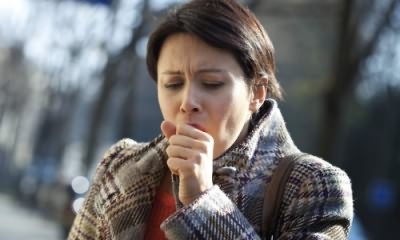
The essence of the problem
Influenza is an acute inflammatory process of an infectious nature that occurs in the upper respiratory tract. In the process of development of the disease, the epithelium of the trachea and bronchi undergo active destruction and detachment, edema and signs of exudative inflammation appear. One of the characteristic signs is hemorrhagic tracheobronchitis.
![]() When treating the disease, it is possible to eliminate the pathogenic influenza virus and eliminate the main symptoms - the development of an inflammatory reaction, elevated temperature, - significantly reduce the general intoxication of the body, edema and spasms. However, it takes a certain amount of time to fully restore damaged tissues. A residual phenomenon in the form of a cough is common after the main symptoms of influenza or SARS have been eliminated. The cough can be dry (irritation reflex) or with phlegm. In the latter case, the purification of the airways from the accumulated exudate continues. Such manifestations can be considered normal with a duration of about 8-14 days, provided there are no other painful signs. The provoking factors can increase the intensity and duration of the cough: smoking, alcohol, smoky or polluted atmosphere, cold dry air.
When treating the disease, it is possible to eliminate the pathogenic influenza virus and eliminate the main symptoms - the development of an inflammatory reaction, elevated temperature, - significantly reduce the general intoxication of the body, edema and spasms. However, it takes a certain amount of time to fully restore damaged tissues. A residual phenomenon in the form of a cough is common after the main symptoms of influenza or SARS have been eliminated. The cough can be dry (irritation reflex) or with phlegm. In the latter case, the purification of the airways from the accumulated exudate continues. Such manifestations can be considered normal with a duration of about 8-14 days, provided there are no other painful signs. The provoking factors can increase the intensity and duration of the cough: smoking, alcohol, smoky or polluted atmosphere, cold dry air.
Complications after the flu
If the cough after the flu does not go away for more than two weeks or other alarming symptoms are observed, then you can suspect the presence of complications of the disease. The most common complications of influenza include bacterial rhinitis, sinusitis, tracheitis, bronchitis, as well as pulmonary pathologies - pneumonia, empyema, respiratory distress syndrome.
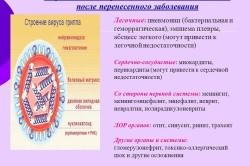 Most often, an influenza complication concerns the upper and middle respiratory tract and is manifested by diseases such as bronchitis, laryngitis and laryngotracheitis. Laryngitis is characterized by a dry barking type of cough and is accompanied by a hoarse voice. Bronchitis causes bouts of severe coughing, followed by pain and a feeling of tightness in the upper chest.
Most often, an influenza complication concerns the upper and middle respiratory tract and is manifested by diseases such as bronchitis, laryngitis and laryngotracheitis. Laryngitis is characterized by a dry barking type of cough and is accompanied by a hoarse voice. Bronchitis causes bouts of severe coughing, followed by pain and a feeling of tightness in the upper chest.
Complications often occur in people in childhood and old age, as well as in the presence of various chronic diseases. If, after taking measures, the cough still remains, then you need to contact a therapist. In this case, it is important to take an x-ray to detect pneumonia. Inflammation of the lungs is a common consequence of influenza and is usually diagnosed early stage Is an important factor in effective treatment.
Cough with phlegm after the flu
Cough manifestations after the flu with sputum production can be considered productive, as they contribute to a good cleansing of the bronchial canals. However, a certain usefulness of such a phenomenon can be recorded only if the following conditions are met: 
- the secreted mucus is transparent and has a normal consistency;
- cough manifests itself only with increased physical or respiratory stress (running, frequent and deep breathing cycles, etc.);
- short coughing up occurs no more than 4-5 times a day and brings noticeable relief of breathing, the main thing is that the total duration of such manifestations should not exceed 2-3 weeks.
If a wet cough a longer period is observed, then it is necessary to conduct examinations with a doctor. Alarming (and even dangerous) signs should be considered the appearance of a purulent (yellow-green) component or foamy mass in the sputum. Any blotting in blood secretions is especially dangerous. Foamy or bloody components can indicate complications in the cardiovascular system, pulmonary pathology, and even incipient pulmonary tuberculosis.
Secondary infection
Another important cause of cough after flu is secondary infection. Influenza or ARVI significantly undermine a person's immunity, weaken his body. In such conditions, he becomes defenseless against new pathogenic pathogens. The risk of new respiratory diseases, pharyngitis, whooping cough, measles, pneumonia, tuberculosis and other infections. Feeling the favorable soil, mycoplasma, chlamydia, fungal microorganisms are activated, causing atypical forms of pneumonia and bronchitis.
Diagnosis of pathology
With a prolonged manifestation of cough or the occurrence of alarming symptoms, you should consult a doctor, who, based on the results of the examination and laboratory tests, will establish the nature of the protracted pathology. The primary diagnosis is based on blood and urine tests. Biochemical methods of studying bronchial sputum have a high informative capacity. It is important to accurately determine the presence and type of pathogen in the infectious nature of the cough syndrome. The condition of the mucous membrane of the bronchi and trachea is determined using bronchoscopy. Ultrasound methods allow making the diagnosis more precise. Pulmonary complications are detected during fluorography or radiography.
Treatment of the disease
If, as a result of the diagnosis, a complication is established, then the treatment is specific, due to the type of pathology identified. The treatment regimen is established by the doctor, taking into account the stage and severity of the disease.
In the case when no significant side pathologies have been identified and the cough after the flu is caused by residual processes, measures should be taken to help the body in the fight against these phenomena.
 Treatment is prophylactic and restorative in nature and is aimed at strengthening immunity, restoring damaged tissues, removing exudate, weakening the cough syndrome. The following measures are recommended as treatment procedures:
Treatment is prophylactic and restorative in nature and is aimed at strengthening immunity, restoring damaged tissues, removing exudate, weakening the cough syndrome. The following measures are recommended as treatment procedures:
- Reducing the intensity of cough manifestations is provided by the drugs "Erespal", "Sinekod". With a strong cough, appoint "Libeksin", "Bronholitin".
- Mucolytics and expectorant drugs are used to dilute and remove phlegm.
- Breathing exercises will help restore the normal functioning of the respiratory muscles. You can perform a simple exercise: from a standing position, while inhaling, spread your arms to the sides, and while exhaling, grab your shoulders with them (while exhaling, breathing is held for 20-30 seconds). You can do the exercise by inflating balloons.
- An effective way of treatment is inhalation. It is recommended to do it using herbal infusions. Such an inhalation composition is widely used: a mixture of pharmacy chamomile with thyme with the addition of baking soda and eucalyptus oil. Inhalation with propolis (25 g per 250 ml of hot water) is considered effective.
- With frequent coughing, an increased drinking regime helps. At the same time, to increase immunity, it is better to use drinks with a high content of vitamins (for example, a decoction of rose hips). To restore the disturbed water balance, it is recommended to use alkaline mineral waters. Alternative treatment often based on the use of warm drinks - hot milk with figs helps very well.
- Warming compresses have proven themselves positively. Such procedures are carried out using lard, badger fat. Effective remedy - warming ointments based on essential oils.
- Are important preventive measures: keeping feet warm (eg woolen socks), wearing warm clothes, maintaining humidity and optimal room temperature.
Cough after an illness is a residual phenomenon, but it can also indicate dangerous complications... Therefore, joking with him is not recommended; on the contrary, appropriate examinations should be carried out. Only a doctor can diagnose the nature of the cough and prescribe the necessary treatment.
A wet cough protects the body from aggressive environmental influences, which include allergens, pathogenic bacteria that enter the respiratory tract. That is, it is considered to be a cleansing method of the respiratory tract from adverse factors, signaling that there are abnormalities in the body that must be clarified before starting treatment. In our article you will learn about the features of therapeutic actions for colds, SARS and flu.
It is quite difficult to independently determine the cause of this phenomenon, which often occurs when:
There are cases that the appearance of a cough reflex is provoked in children when:
- prolonged crying;
- large accumulation of dust;
- dry air in the room.
Cold cough and therapy methods
A cold cough is a fairly common occurrence during the cold season. When choosing a method of treatment, it is necessary to understand that this is only a symptom of the underlying disease, which, in the absence of adequate therapeutic methods, can turn into a chronic stage.
 with a cold, it can last for several weeks, although the cold itself disappears in 3-4 days. However, it is quite difficult to control this symptom, since a cough with a cold can occur earlier than other symptoms and linger for a month longer. How long it lasts depends on the quality of the therapeutic action.
with a cold, it can last for several weeks, although the cold itself disappears in 3-4 days. However, it is quite difficult to control this symptom, since a cough with a cold can occur earlier than other symptoms and linger for a month longer. How long it lasts depends on the quality of the therapeutic action.
Many of our readers for the treatment of cough and improvement of the condition in bronchitis, pneumonia, bronchial asthma, tuberculosis are actively using the Monastery collection of Father George. It contains 16 medicinal plants that are extremely effective in the treatment of chronic COUGH, bronchitis and smoking-induced cough.
During the time when a cold lasts, the bronchi are damaged by viruses or bacteria, which leads to an increase in their sensitivity. A child's cough can be caused by inhaling polluted or cold air. The body needs additional time for this symptom to go away. The recovery period requires therapeutic measures and the absence of hypothermia.
Usually, the treatment of a cold cough involves the use of funds traditional medicine, which remove this residual phenomenon well. Herbal preparations help to eliminate puffiness, have a mucolytic, expectorant and antispasmodic effect. They are used in the form of decoctions, infusions, inhalations, compresses.
The following are the most common methods to help treat a cold cough:

Therapy and causes of the onset of ailment with ARVI
A cough with ARVI appears due to the progression of viruses, as a result of which a large amount of mucus develops in the bronchial tree. Then a cough reflex is developed, which calls for a sharp exhalation of air due to irritation of the bronchial walls with mucous secretions.
With this disease, there are many types of this symptom. First, a dry cough appears with ARVI, characterized by the absence of sputum.
If it does not bother the child and does not bring discomfort, then, as a rule, treatment is not required. Also, during the lesion of ARVI, a barking form may begin, which should alert the patient.
This type is painful, it is more acute, manifests itself as a result of exposure to bacteria, if it is not stopped in a timely manner, then this threatens the development of laryngitis or laryngotracheitis. Therapeutic actions should be carried out in a hospital setting due to the likelihood of complications.
Subsequently, a productive species develops, indicating that the patient is recovering, since, thus, the infection leaves the body, the respiratory tract is cleared of pathogenic microorganisms. Often people are interested in the question of how long the cough reflex lasts during ARVI. It should take place over 3 weeks. If it lasts more than 1 month, then we are talking about the chronic course of the disease.
If the cough reflex does not cause significant discomfort, then you should not start drug therapy. A viral form of the disease, accompanied by a deterioration in well-being, requires a doctor's consultation. Usually, therapy is prescribed in 2 directions:
- To suppress the cough reflex.
- Dilution of phlegm.
It is dangerous to use antitussive drugs on your own, as they can harm the body's self-purification. These are drugs such as:
- Tusuprex.
The respiratory virus that caused the disease needs to be carefully removed from the respiratory tract, for these purposes, phlegm thinning agents are used for coughing, for example:
Therapeutic actions for influenza and prevention
A cough with influenza affects the mucous membrane, which leads to inflammation of the airways and death of epithelial cells.
The flu begins with an irritating cough that injures the mucous membrane and provokes the appearance of microtraumas. From this, the attachment of a bacterial infection can begin, which will help to determine viscous and purulent sputum.
Coughing during this illness should not last more than 3 weeks. If the cough with influenza continues for a longer time, then you should additionally be examined by a specialist in order to avoid the development of consequences. Coughing during pneumonia and bronchitis can complicate the flu, as evidenced by greenish impurities in the sputum.
It is necessary to seriously approach the treatment of residual effects of influenza, since the wrong therapy can lead to all sorts of complications. The doctor will tell you how to properly treat a cough with flu, usually he prescribes:
Important! It must be remembered that it is impossible to treat a cough with influenza by simultaneously taking antitussive and thinning drugs, since a complication such as pneumonia can be provoked.
As you know, it is better to prevent a disease than to cure it. This also applies to cough, which is known to be famous for its long healing period. To do this, it is recommended to observe the following simple rules:
It is necessary to carefully approach such a phenomenon as a cough, since it can have a different nature of origin. Accordingly, therapeutic actions will differ from each other. To get rid of this manifestation as soon as possible, you need to consult a doctor and follow all his recommendations.
A cough that persists after a cold for more than three weeks is called chronic or lingering.
In most cases, this is a symptom of chronic bronchitis, it can be caused by excessive smoking, bronchial asthma, long-term work in hazardous industries - paint and varnish factories, chemical plants.
If a nonsmoking adult or child does not have a cough after a cold for a long time, and contacts with possible allergic irritants are excluded, this may be a symptom of another disease.
In this case, it is imperative to undergo a medical examination and establish the cause.
When the cough is long, dry, it is necessary to check first of all if it is caused by dripping on back wall larynx mucus from the sinuses. It can also be caused by the reverse peristalsis of the stomach and esophagus - this is a sign of a serious gastrointestinal disease. Heart disease, pulmonary edema, tumors also sometimes provoke a dry cough.
The reasons why the cough does not go away for a long time after the cure of acute respiratory infections
Most common reasons long cough after a cold the following:
- Long-term smoking;
- Pathology of the heart and lungs;
- Benign formations in the organs of the respiratory system;
- Asthma.
To establish the nature of the origin of such a phenomenon, you need to pay attention to other symptoms: wheezing in the chest, nasal and lung congestion, sputum discharge, their viscosity and color, blood in the sputum from the bronchi and lungs, a feeling of tightness in the chest, pain in the heart , shortness of breath.
With asthma, a long, dry cough can be troubling all the time, or it can occur when exposed to an allergen.
After a cold that has not been cured, coughing is often observed at a reflex level, which is caused by an increased sensitivity of the inflamed lungs.
What does it mean if the cough does not go away for a week
If such a phenomenon does not go away for more than seven days, and at the same time is accompanied by symptoms such as a runny nose, fever, joint pain, most likely, we are talking about a common cold. If treatment is started as soon as possible, it will not be difficult to overcome it. But the treatment needs to be completed, and not just to eliminate the unpleasant manifestations of the disease.
If the treatment is not carried out, or was not carried out to the end, there is a risk that acute respiratory infections will turn into tracheitis or chronic bronchitis. At home, dry cough can be treated with inhalation. Wet steam will soften irritated mucous membranes, improve blood circulation, and promote the liquefaction and discharge of phlegm.
For inhalations to be more effective, various medicines... It can be decoctions of thyme, mint or coltsfoot, essential oil of thuja, eucalyptus, propolis or calendula tincture. To prepare the broth, you will need 2 tablespoons of dry herbs and two glasses of boiling water. Essential oils are added to water in a few drops.
If a cough with phlegm, but no fever, is caused by an allergy, you should drink a course of antihistamines. Loratadin, Fexofenadine help with this type of cough. You need to exclude smoking, inhalation of toxic substances, get rid of feather pillows in which mites that cause allergies can live.
Whatever the reason for a lingering wet cough, along with medications, you need to consume as much liquid as possible. The liquid helps to liquefy phlegm, increases their amount and accelerates excretion.
Coughing, with shortness of breath, wheezing in the chest, but no fever, may occur in heart failure.
Therefore, it is imperative to see a doctor. In addition to blood, urine and sputum tests, he will advise you to take an X-ray, possibly a cardiogram of the heart.
Causes of a lingering dry cough
A dry cough is a symptom of upper respiratory tract disease. Since the bronchi and lungs are not affected by the infection, phlegm does not accumulate in them. Expectorants and mucolytic coughs will not be effective in this case. But this does not mean that you do not need to take medications.
These drugs are usually prescribed:
- The main active components of which are codeine and ethylmorphine, which act on the medulla oblongata, which is responsible for the onset of the cough reflex. These are Codeine and Glaucine.
- Manufactured on the basis of acetylaminonitropropoxybenzene that affect cough receptors are Codelac Broncho, Omnitus, Falimint.
Medication can be supplemented with treatment with folk remedies. Warm drinks, such as milk and soda, are very helpful. During the day, you need to drink several cups of decoction of black currant leaves or raspberries, peppermint.
Drinking with anise tincture, radish or onion syrup with honey is useful.
Causes of cough after colds
Coughing and sneezing are some of the first signs of a cold. With proper treatment, cold symptoms disappear after 3-4 days. A week later, the patient is completely healthy. But coughing can bother as a residual phenomenon of acute respiratory infections for several more weeks. This is normal.
But only on the condition that the coughing did not stop after 2-3 weeks, that it is not accompanied by other alarming symptoms and there are no impurities of pus and blood in the outgoing sputum.
What to do with a prolonged cough, the specialist will tell you in the video in this article, and we suggest listening to the advice.
Often after a cold or viral infection coughing fits remain. Sometimes it drags on for weeks or even months.
Causes of cough after a cold
The cause of a cough after a cold is a virus that causes swelling of the airways. It increases the sensitivity of the lungs, which causes the cough reflex. This is a painful ailment, because seizures occur not only during the day but also at night.
This condition causes dizziness, headaches, excessive sweating, and urinary incontinence.
Another cause is pneumonia. This is a serious complication accompanied by chest cough with unpleasant and drawing pains in the chest or back. It is difficult for a person to breathe, headaches appear. If measures are not taken in a timely manner, the sputum will not come out of the lungs, and an adhesions or pleurisy will form. This can lead to tuberculosis, which must be treated with physical therapy and a course of antibiotics.
A long, dry cough indicates bronchitis, when the cough is concentrated in the middle of the lungs. The sputum-filled bronchi cause a wheezing in the chest area and prolonged coughing fits. Timely treatment can help prevent pneumonia. In this case, the doctor will prescribe expectorant drugs.
Cough relief after a cold
Cough is a defense mechanism, as it removes mucus from the respiratory system. It happens that treatments aimed at suppressing it can harm the body. To relieve seizures, especially at night, you can use proven methods. For this you need:
- bottled water;
- infrared heater;
- cough syrup;
- expectorant medicines;
- antihistamines;
- cough drops.
Instructions for cough relief
- First of all, you need to determine the cause of the cough, as a symptom of any disease.
- Stop smoking, as cigarette smoke is an irritant to the respiratory system.
- Remove possible chemical irritants.
- Use a humidifier.
- Drink plenty of fluids to help ease dry coughs and flush mucus.
- Use antihistamines if you have allergies.
- Drink hot drinks - tea with honey, broths.
- Take cough drops, expectorants, and antitussives.
Cough after a cold: treatment
Often, after recovery, a moist cough still remains. This suggests that bacteria are in the weakened body. Inflamed bronchi lead to lingering cough... Self-medication is not appropriate here. An x-ray and blood and sputum tests are required. In order for the cough to lead to a chronic illness, antibiotics are prescribed.
Broths of sage and oak bark help well in this case. Combined fees can also be used. Essential oils are used as inhalations.
Cough does not go away for a long time after a cold
A cough that does not go away for a long time after a cold is called post-infectious cough. The mucous membranes affected by a cold continue to be irritated and inflamed. This can last for two months or more, and is accompanied by itching, sore throat and general malaise.
Along with the use of herbal syrups, the chest and back area should be warmed up without affecting the heart area. Use warming ointments, mustard plasters, badger fat, or vinegar.
Supplement your diet with foods that are traditional healers. For example, bake a black radish in the oven. Juice honey and onions. Weakened immunity must be strengthened with vitamins and minerals, as well as hardening procedures.
Dry cough does not go away after a cold
If a dry cough does not go away for a long time, then an allergy may be the cause. Get tested to identify the allergen. After that, you need to take all the necessary measures so that he is not next to you.
For dry coughs, use honey with finely chopped garlic and onions. Along with the antibacterial effect, it will soften the throat.
Cough persists after a cold: asthma
Asthma is chronic illnesswhich affects five percent of the adult and ten percent of the child population. A cold with asthma significantly worsens the condition and can lead to a new round of the disease. During normal breathing, the smooth muscles of the bronchi are in a relaxed state. With an asthmatic attack, changes occur:
- the lumen of the bronchi narrows, and bronchospasm occurs;
- inflammation and swelling of tissues appears;
- mucus becomes more viscous
These symptoms lead to choking, coughing, wheezing. Cold viruses significantly aggravate this condition.
Doctors define an asthma cough as chronic if it lasts more than a month. It causes a sore throat, and can appear during exercise or laughing, as well as at night.
Get a flu shot every year to prevent complications. Compliance with the rules of personal hygiene, especially wash your hands regularly.

